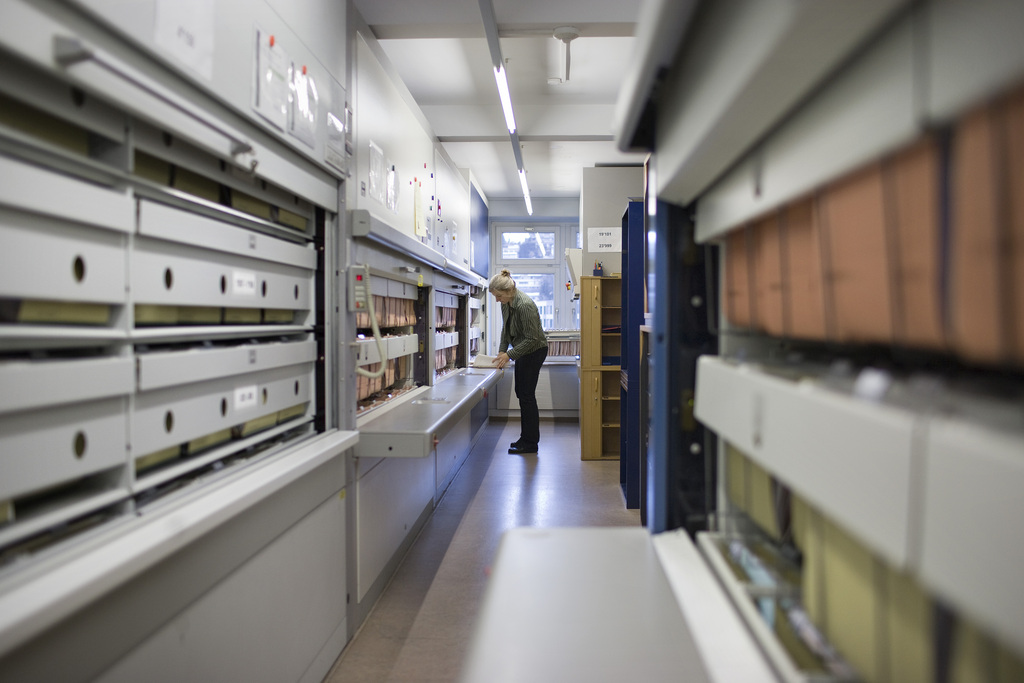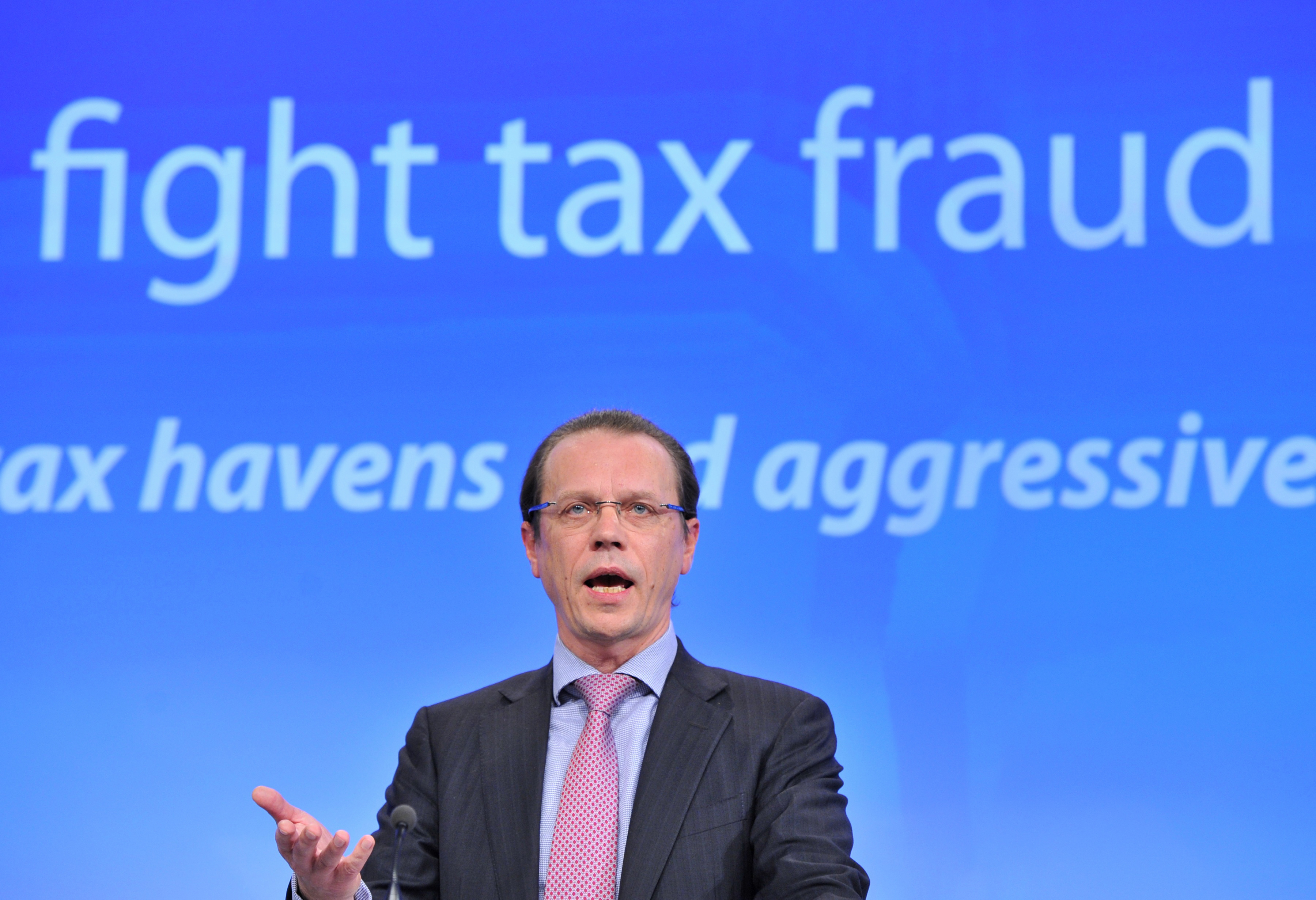Cantons begin to see downside of low tax rates

For years they fought to offer the lowest tax rates but now some cantons in central Switzerland are questioning the wisdom of this rampant tax competition as the population boom that came with it weighs more heavily on local resources.
The paradise that is central Switzerland is as much natural as it is fiscal: glassy lakes, snowy peaks, untouched natural beauty, and a state – cantonal – that only moderately taps individual income or business profits. These attributes cause foreign taxpayers to arrive in droves and the European Union to grumble that Switzerland as a whole is a tax haven.
But now both Brussels and the cantons are suffering from the effects of this competition that saw the cantons, particularly in the 2000s, practically fall over themselves to outdo each other on lowering taxes, and the discontent is bubbling to the surface.
Christian Democrat member of Schwyz cantonal government Othmar Reichmuth gave voice to the rising discontent late last year when in the local press he effectively posed the question: “What do we really want?”
Denouncing the collateral damage of low tax rates as an aging population (49 per cent of inhabitants in Schwyz are aged over 30), an additional 3,000 cars on the roads each year, perpetually rising rents and insurance premiums, and “trains and roads which are jammed morning to night”, Reichmuth, a cheese maker by trade, answered his question thus:
“I don’t need six-lane motorways, or managers with extravagant salaries, or foreigners who benefit from favourable tax treatment.”
Taxes hike
Reichmuth’s comments set off something of a small bomb in central Switzerland, the shockwaves of which were felt through to December when citizens in the popular tourist destination of Lucerne accepted a three-point increase in tax rates. In financial trouble, Lucerne had been debt-free until 2007 and all political parties – with the exception of the rightwing Swiss People’s Party – agreed to the rise in taxes.
From one day to the next, Reichmuth became, without intending to, he says, a symbolic figure for a certain discontent among the central Swiss. A poll in the local newspaper Bote der Urschweiz found that for 57 per cent of voters in Schwyz, the population growth generated by the region’s appeal was a “curse”. Four years earlier, 55 per cent had qualified the increase as a “blessing”.
Population growth across Switzerland has been particularly pronounced. Since 1972, central Switzerland (Schwyz, Lucerne, Nidwalden, Obwalden, Uri and Zug) has seen its population grow by some 40 per cent, according to the Federal Statistics Office. Only the Lake Geneva region has registered higher growth of 41.5 per cent across cantons Vaud, Valais and Geneva.
– Proportion of the super-rich (SFr10 million+) compared to the population in 2009: cantons Schwyz, Nidwalden and Zug head the list on 0.84 per cent, 0.8 per cent and 0.76 per cent respectively, while Valais on 0.05 per cent, and Uri, Fribourg and Jura with 0.05 per cent come in last.
– Degree of exploitation of taxation potential which reflects the total tax burden of a canton. In cantons Nidwalden (64), Schwyz (54) and Zug (49.8) it is less than the average 100, but in cantons Geneva (128.7), Jura (126.3) and Fribourg (123.7) it is above the average.
– According to BAKBasel, cantons Nidwalden and Lucerne offer the most favourable tax conditions for business with average tax rates of 10.6 per cent, followed by Obwalden (11.1 per cent), Schwyz (11.6 per cent), and Zug (12.8 per cent). In French-speaking Switzerland, Valais leads in 16th overall position (19.6 per cent), followed by Vaud in 17th position (19.7 per cent).
– The two cantons with the highest tax rates for business are Basel City (20.2 per cent) and Geneva (21.4 per cent).
– By international comparison, only Hong Kong has lower tax rates (9.7 per cent). In Europe, Ireland has tax rates comparable to these Basel City and Geneva.
Sources: Swiss Federal Tax Administration, Federal Statistics Office, BAK Basel Economics, July 2012
Limit arrivals
In 2013, the public budgets have lurched into the red, notably in Schwyz and Zug. Some argue it’s a direct consequence of lower tax collections while others blame the cantons which, in the euphoria of their success and favourable economic conditions, loosened the purse-strings too much and expanded government services. Schwyz was one of those which abandoned its previously conservative budget policy to boost the police force and other sectors.
Reichmuth’s comments were also welcomed in canton Zug, paradise of the multinationals located a stone’s throw from Zurich and where the lack of affordable housing has set local teeth on edge.
In January, head of the cantonal government in Zug, Beat Villiger told the NZZ am Sonntag newspaper, that it was time to put the brakes on growth by placing a limit, for example, on the number of new arrivals. Villiger said the government wanted to halve arrivals from 22,000 until 2030, to 11,000.
Would such a change necessitate a reversal of tax policy? Most commentators won’t go that far.
“This is a particular moment in history,” Nils Soguel, professor of public finances at the Swiss Graduate School of Public Administration told swissinfo.ch. “Aside from international pressures, these ‘handbrake’ initiatives coincide with the end of an economic cycle. The population growth also raises a question of identity: the arrival of new inhabitants translates into the necessity of integrating them, which itself poses new problems.”
Ideal rural image
Economist and editorialist Beat Kappeler said the arguments were first and foremost aimed at voters in the cantons concerned.
“But the discontent of the population is palpable. People are suffering from the effects of the massive influx of capital. The reaction also reveals to what point these little cantons, Schwyz and Zug, are attached to their “rural” image although visibly, their appearance has much changed. Zurich, on the other hand, has no problem building skyscrapers and even takes a certain pride in it.”
Schwyz and Zug also complain of having to pay too much into the different federal funds for financial equalisation, the ultimate instruments of federalism which redistribute subsidies according to the resources and burdens of each canton.
“These cantons feel they are paying to bail out the others,” said Soguel. “But they are rich cantons. To call into question the notion of equalisation also calls into question the notion of solidarity and its mechanisms.”
Vice president of the Greens and former Zug parliamentarian Josef Lang said: “Something has changed in the minds of the population about which I hold no illusions. Politically, we are still far from increasing taxes even if the vote in Lucerne will surely have a slowing effect.”
And so does Othmar Reichmuth see himself as one of the “courageous heroes” of the new cause?
“Not at all. On the contrary, I am a realist. We cannot stop growth,” he said. “But I wanted to provide an impetus…”
Meanwhile, 25 of the 30 fiscal districts in Schwyz have already raised taxes.
(Translated from French by Sophie Douez)

In compliance with the JTI standards
More: SWI swissinfo.ch certified by the Journalism Trust Initiative


You can find an overview of ongoing debates with our journalists here. Please join us!
If you want to start a conversation about a topic raised in this article or want to report factual errors, email us at english@swissinfo.ch.